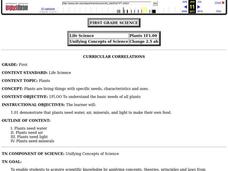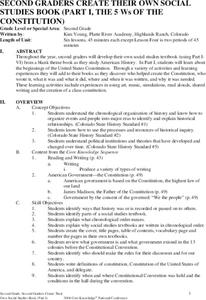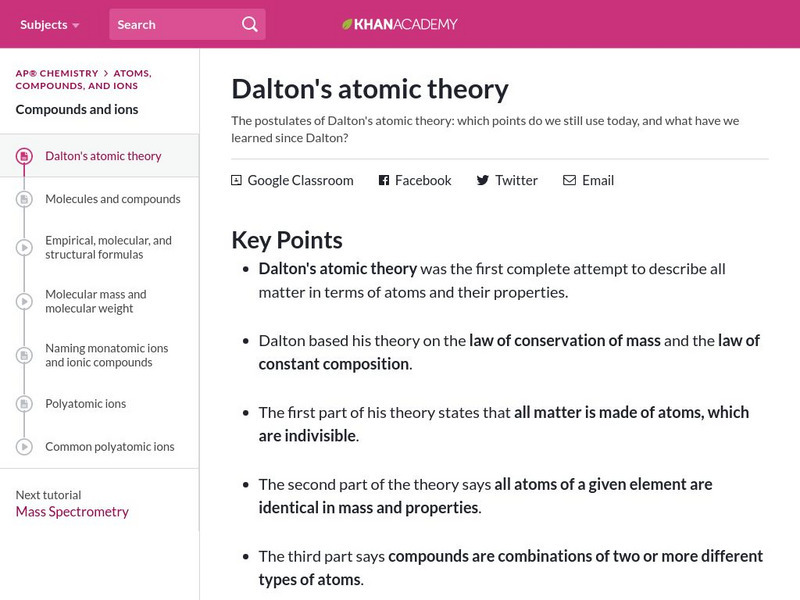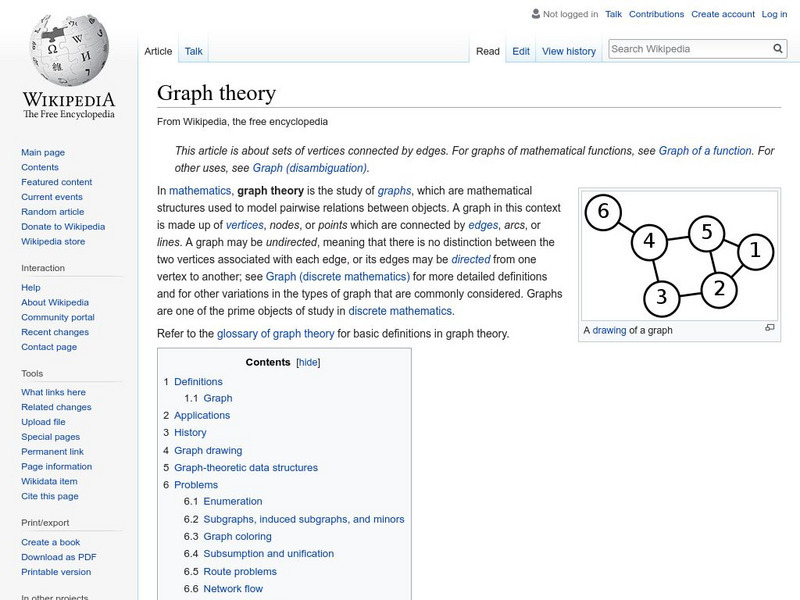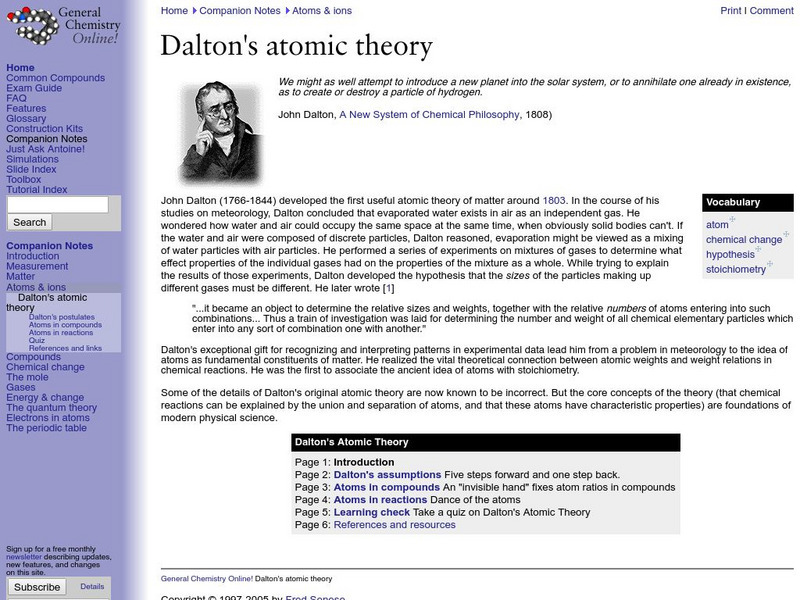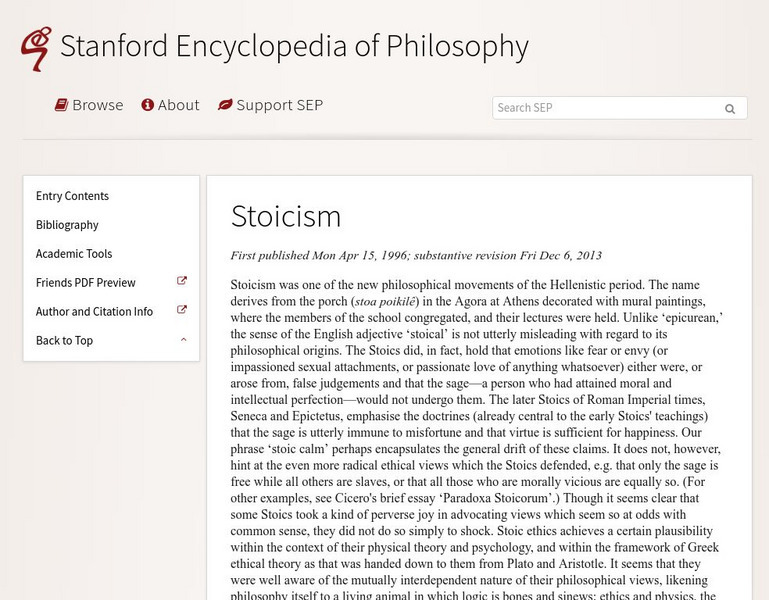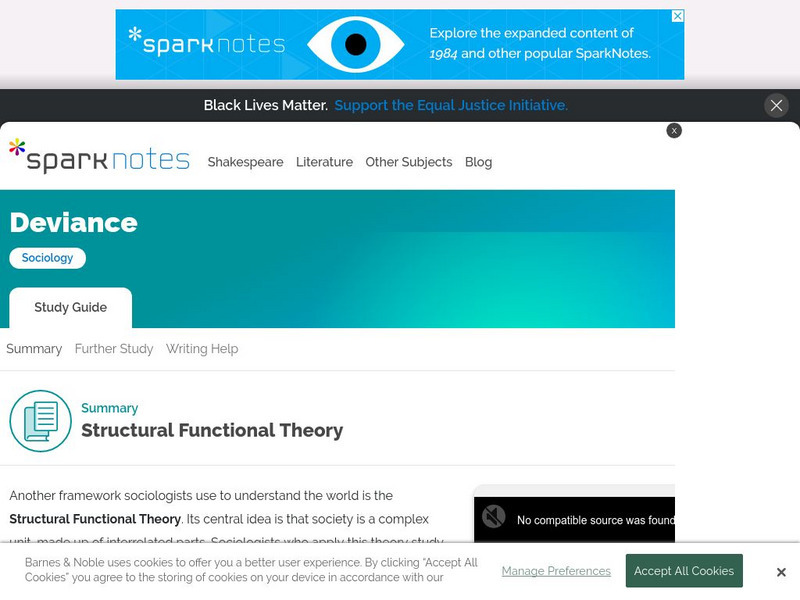Curated OER
Reflection of Light With Two Plane Mirrors- Double Mirrors Placed at a Number of Angles
Students place two plane mirrors at different angles to experiment with reflection. They make kaleidoscopes and periscopes.
Curated OER
Testing the Hypothesis
Students create and conduct various experiments to determine the origin of a family artifact, and then determine whether their results were successful. Students summarize their results and evaluate whether their hypotheses were correct.
Curated OER
Change by Chance?
Sixth graders are able to see the role of chance in evolution. The activity is similar to the party game "gossip" or "telephone." Students start off with a drawing of an animal which changes as they pass their copies of the animal to...
Curated OER
The Declaration of Independence
Students explore the Declaration of Independence and the Bill of Rights. They research a philosopher using reference books and reliable
Internet sources and write a two-page paper utilizing proper writing conventions. In addition, they...
Curated OER
Weather Systems
Fourth graders research weather phenomenon in groups on the Internet and create a slide for the class power point presentation. They include 5 key points (temperature, air pressure, and fronts and descriptions for each type of cloud or...
Curated OER
Plants
First graders explore the specific needs, characteristics, and uses of plants. They discuss the needs of plants as they grow. Students observe plants in various settings as they grow and note the changes they see.
Curated OER
Weather Mobile
Students color the lightning part of the thunder cloud and then cut out the pattern. They then cut out the cloud pattern and put cotton onto it with glue. They then fold a piece of paper several times to create a snowflake to which they...
Curated OER
Telescopes Then And Now
In this telescopes instructional activity, students will read information about the differences between the early telescopes and the modern telescopes. Then students will complete 2 short answer questions.
Curated OER
Who Am I? Famous Scientists
In this scientists learning exercise, learners read a brief synopsis of a scientist, then try to identify the person, 12 total. Worksheet contains links to additional activities.
Curated OER
Second Graders Create Their Own Social Studies Book (Part I, The 5Ws of the Constitution)
Students study the United States Constitution and create a year-long cumulative activity for social studies. In this social studies lesson, students complete activities throughout the year to learn the 5Ws for the United States...
Curated OER
The importance of names
For this Harry Potter worksheet, students write descriptions for how J.K Rowling's titles of books used in the Harry Potter books are related to the author's name. Students complete 5 descriptions.
Curated OER
Classifying Matter Game
Learners identify the different states of matter. In this chemistry instructional activity, students differentiate the physical properties of the three states. They apply what they learned by playing a team game at the end of the...
Houghton Mifflin Harcourt
Houghton Mifflin Harcourt: Cliffs Notes: Theories of Deviance
Read about four theories related to deviance and criminology which have emerged within the past 50 years.
Khan Academy
Khan Academy: Dalton's Atomic Theory
Resource investigates the beliefs of Dalton's atomic theory which consists of four parts. Which points do we still use today, and what have we learned since Dalton?
Khan Academy
Khan Academy: Oligopoly and Game Theory: Foundational Concepts
Practice what you've learned about oligopolies and the basics of game theory, such as Nash equilibrium, in this four-question exercise.
Wikimedia
Wikipedia: Graph Theory
Wikipedia provides an introduction and overview of graph theory. In addition to introducing the basic terms, there are related links to classic problems in graph theory such as the traveling salesman problem and Dijkstra's algorithm.
Frostburg State University
General Chemistry Online: Dalton's Atomic Theory
Discusses John Dalton's development of the atomic theory and the four main points of his theory. Includes references and a link to a quiz on Dalton's Atomic theory.
Other
Theories of Learning in Educational Psychology: Learning Theories Site Map
Extensive information about four perspectives of learning theories, and the models that have been developed under each. These include the behaviorist perspective, the cognitive perspective, the humanistic perspective, and the social...
Stanford University
Stanford Encyclopedia of Philosophy: Physical Theories of Stoicism
Describes the Stoic philosophies and beliefs about theology, fate, and elemental theory.
Lumen Learning
Lumen: Boundless Sociology: Sociological Theories of Deviance
Outlines the four main perspectives of what social deviance is: social strain typology, structural functionalism, conflict theory, and labeling theory.
Read Works
Read Works: Aztecs, Incas, and Mayans the Land of the Four Quarters
[Free Registration/Login Required] This nonfiction passage describes the Inca Empire and shares a theory about how the civilization disappeared. This passage reinforces essential reading comprehension skills. Opportunities for vocabulary...
Other
Wikia: Human Science: Law, Principle, Theory, Rule
Law, principle, theory, and rule are the four stages necessary in the evolution of social change. Dive into the depths of how each plays their role in the change. Find examples listed to aid in comprehension of each stage, definitions,...
SparkNotes
Spark Notes: Deviance: Structural Functional Theory
Explains how structural functional theory can be used to explain social deviant behavior. Describes four functions of deviance that were identified by Durkheim, and the deviant and conformist ways that individuals respond to...
PBS
Pbs: Nova: The Four Winged Dinosaur
In 2002, paleontologists discovered a fossil in China that seemed to provide a missing link between dinosaurs and birds, and to support the theory that birds evolved from dinosaurs. The fossil came from a four-winged dinosaur they named...







